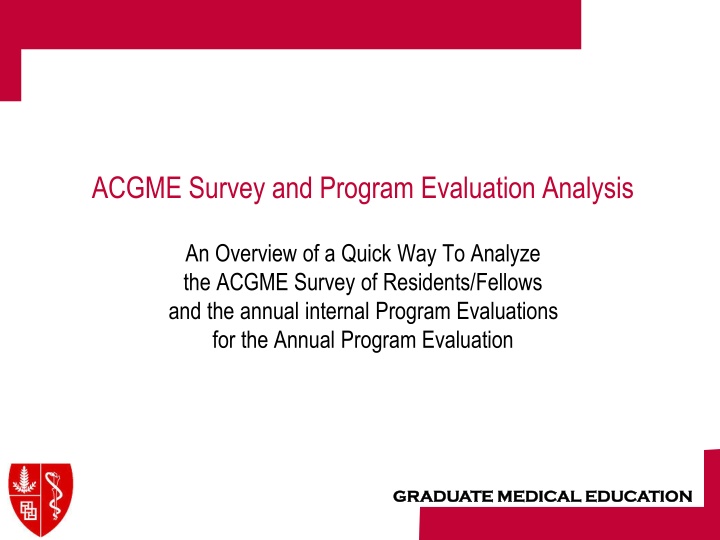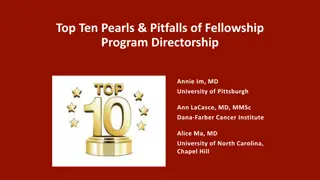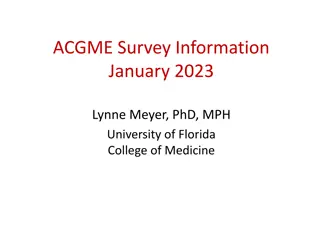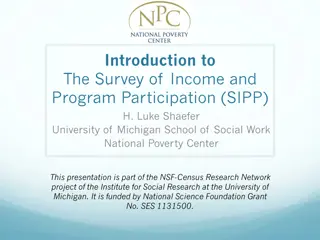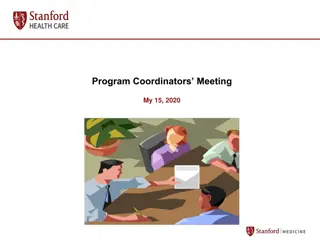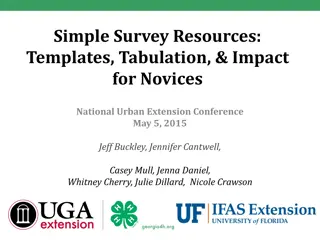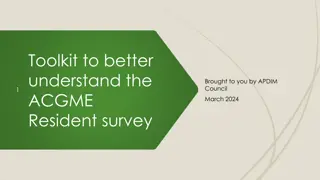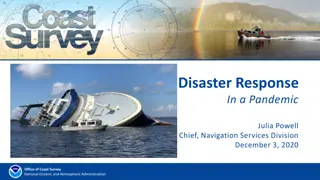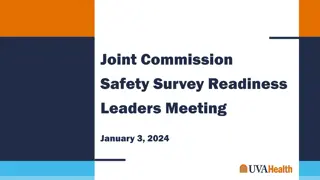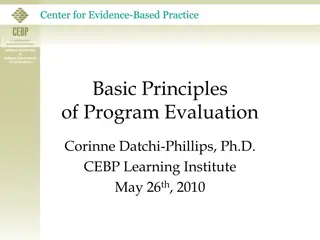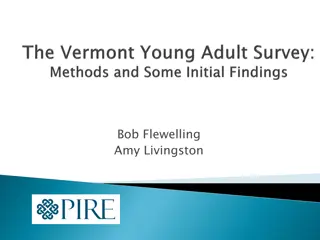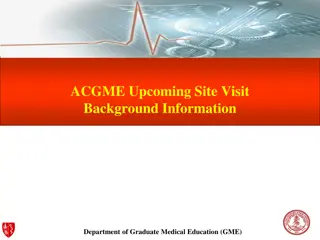ACGME Survey & Program Evaluation Overview
Understanding and analyzing the ACGME Survey of Residents/Fellows and annual internal Program Evaluations for Graduate Medical Education. Highlights noncompliant areas and improvement opportunities from the survey results. The program evaluation analysis covers areas for improvement and strengths, providing insights for further enhancement.
Download Presentation

Please find below an Image/Link to download the presentation.
The content on the website is provided AS IS for your information and personal use only. It may not be sold, licensed, or shared on other websites without obtaining consent from the author.If you encounter any issues during the download, it is possible that the publisher has removed the file from their server.
You are allowed to download the files provided on this website for personal or commercial use, subject to the condition that they are used lawfully. All files are the property of their respective owners.
The content on the website is provided AS IS for your information and personal use only. It may not be sold, licensed, or shared on other websites without obtaining consent from the author.
E N D
Presentation Transcript
ACGME Survey and Program Evaluation Analysis An Overview of a Quick Way To Analyze the ACGME Survey of Residents/Fellows and the annual internal Program Evaluations for the Annual Program Evaluation GRADUATE MEDICAL EDUCATION GRADUATE MEDICAL EDUCATION
ACGME Survey Analysis Notes Noncompliant Areas (Under 80% Positive Responses): Satisfied that evaluations of faculty are confidential (75%). Satisfied with feedback after assignments (75%). Instructed how to manage fatigue (75%). Satisfied with opportunity for scholarly activity (50%). Appropriate balance for education (63%). Education (not) compromised by service obligations (38%). Provided data about practice habits (13%). Provided a way to transition care when fatigued (63%). Satisfied with process to deal with problems and concerns (75%). Residents can raise concerns without fear (63%). Improvement in all six areas: Duty Hours, Faculty, Evaluation, Educational Content, Resources, and Patient Safety/Team Work. Below National Mean: Overall, Educational Content, Resources. 4
PROGRAM EVALUATION ANALYSIS NOTES Areas For Improvement: Not sure program advances knowledge of basic principles of research (33%). Truly protected time to attend didactics without interruption (16.67% disagree slightly). Would recommend this program to potential applicants (16.67% strongly disagree). Faculty in my program regularly participate in journal clubs (33% disagree). Overall satisfied with training they have received so far (16.67% strongly disagree). Areas of Strength: Presence of other learners doesn t interfere with education (100% strongly agree). Faculty in my program regularly participate in rounds (83% strongly agree). Comment Summary: + Variety of cases at three hospitals + Faculty make fellow education a priority, dedicated faculty - Would like more career guidance - Would like more mentoring that can lead to career development - Would like more funding for educational conferences 7
